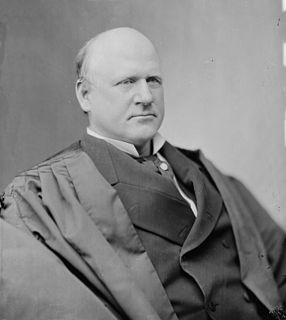A Quote by William Graham Sumner
Civil liberty is the status of the man who is guaranteed by law and civil institutions the exclusive employment of all his own powers for his own welfare.
Quote Topics
Related Quotes
The opinions of men are not the object of civil government, nor under its jurisdiction; that to suffer the civil magistrate to intrude his powers into the field of opinion and to restrain the profession or propagation of principles on supposition of their ill tendency is a dangerous falacy, which at once destroys all religious liberty...
When we ask Negroes to abide by the law, let us also declare that the white man does not abide by law in the ghettos. Day in and day out he violates welfare laws to deprive the poor of their meager allotments; he flagrantly violates building codes and regulations; his police make a mockery of law; he violates laws on equal employment and education and the provisions of civil services. The slums are the handiwork of a vicious system of the white society; Negroes live in them, but they do not make them, any more than a prisoner makes a prison.
Liberty ... was a two-headed boon. There was first, the liberty of the people as a whole to determine the forms of their own government, to levy their own taxes, and to make their own laws.... There was second, the liberty of the individual man to live his own life, within the limits of decency and decorum, as he pleased -- freedom from the despotism of the majority.
The only proper, moral purpose of a government is to protect man's rights, which means: to protect him from physical violence - to protect his right to his own life, to his own liberty, to his own property and to the pursuit of his own happiness. Without property rights, no other rights are possible.
As the patriots of seventy-six did to the support of the Declaration of Independence, so to the support of the Constitution and Laws, let every American pledge his life, his property, and his sacred honor;-let every man remember that to violate the law, is to trample on the blood of his father, and to tear the character of his own, and his children's liberty.
Just what is the civil law? What neither influence can affect, nor power break, nor money corrupt: were it to be suppressed or even merely ignored or inadequately observed, no one would feel safe about anything, whether his own possessions, the inheritance he expects from his father, or the bequests he makes to his children.
































